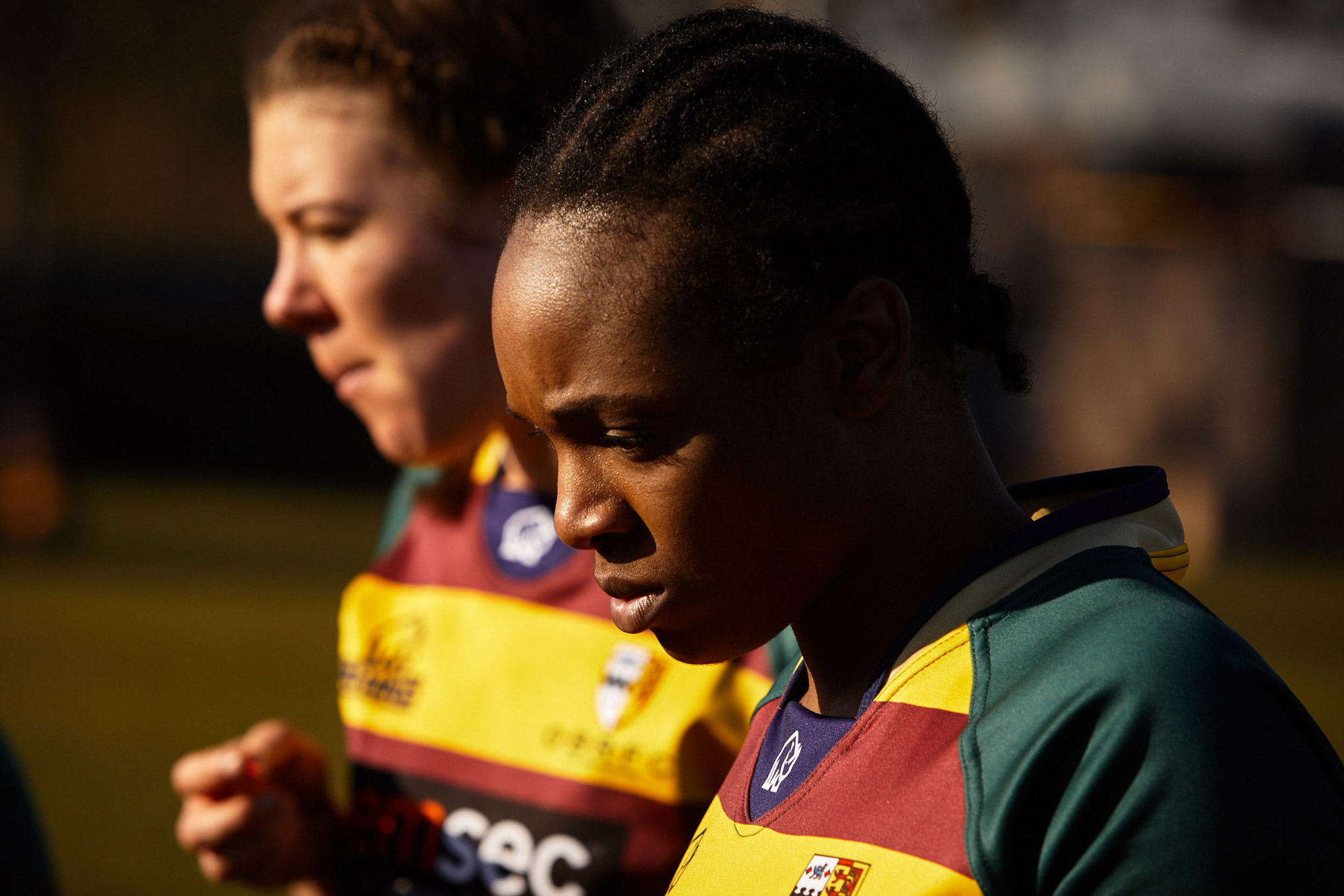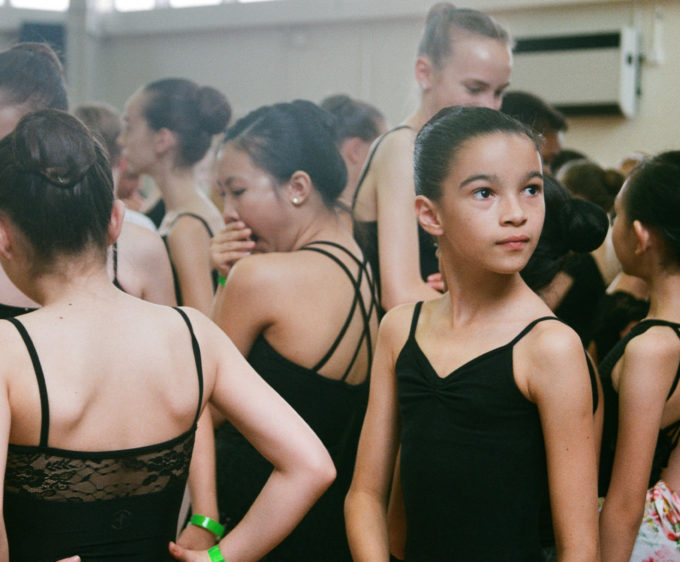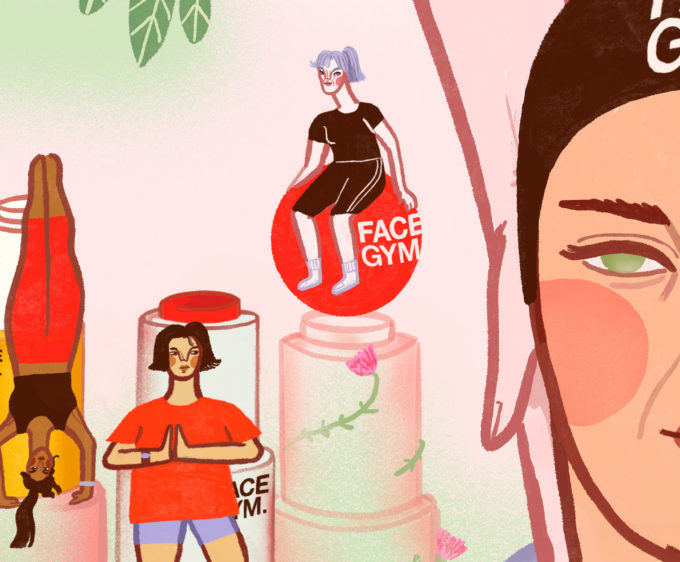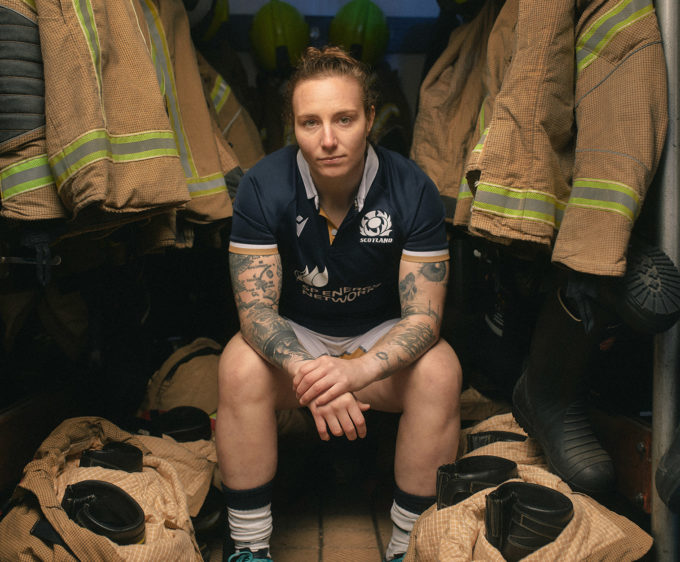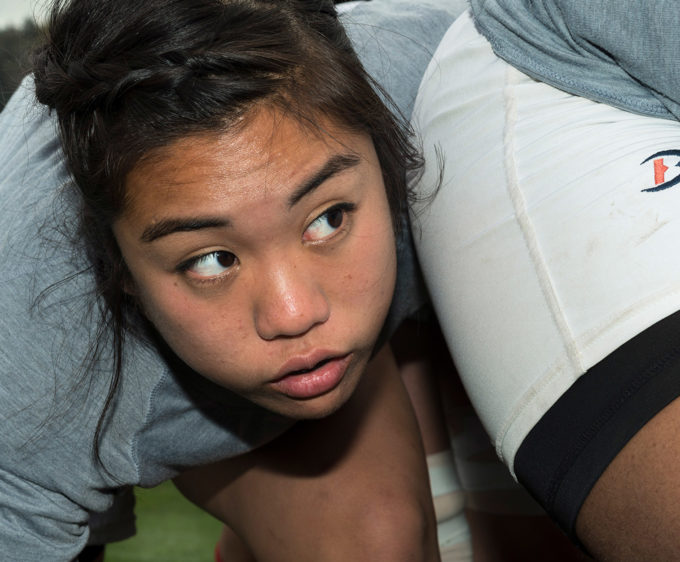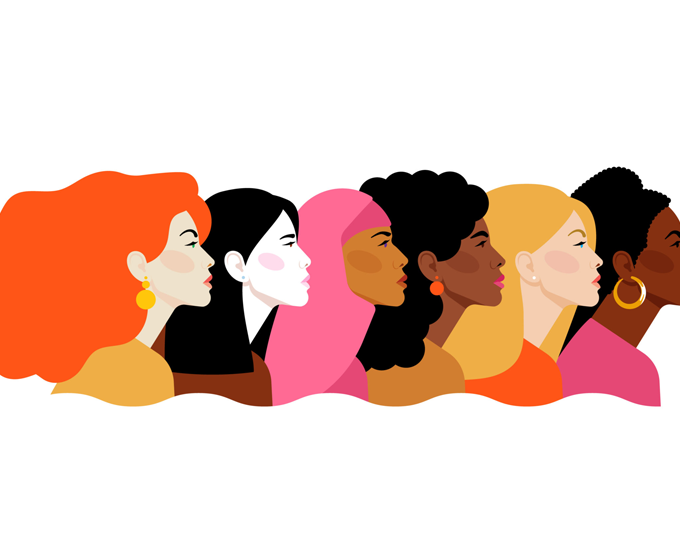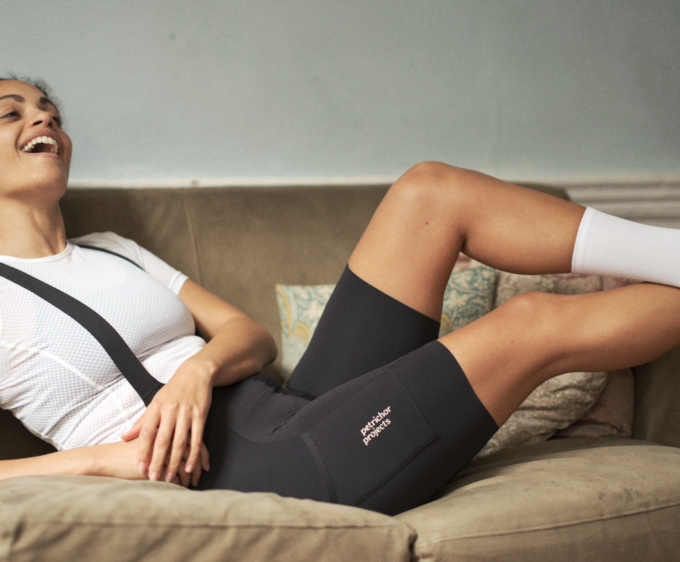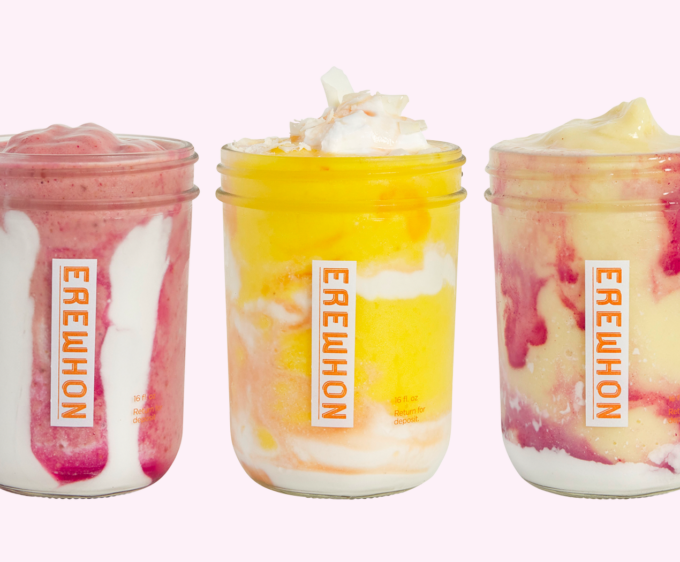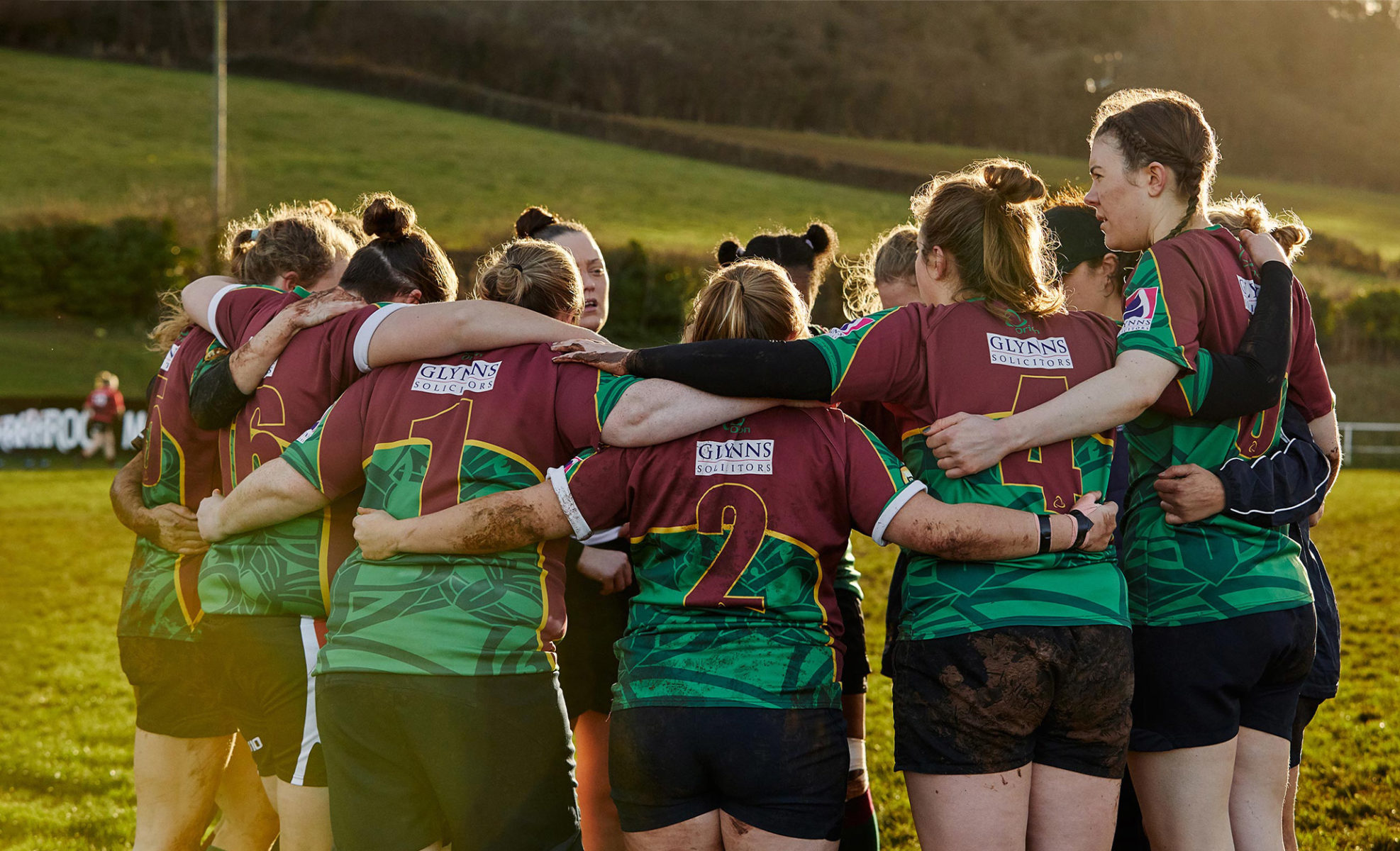
Getting Into Touch With Rugby
The game may have some tough moments but that’s of no concern to the droves of women signing up to play rugby. We talk to a team in Bristol that is leading the way, to find out what’s behind its popularity
By Liz Connor
Photography By Richard Johnson
According to utility back Nina Szamocki, the great thing about playing women’s rugby is that you don’t need to look a certain way to be good at it. “Every position has a particular body shape which is well suited to it: the forwards tend to be much bigger and more muscular, while the backs and the scrum-half position are smaller and more lithe,” she explains. “The sport really lends itself to every shape and size and it just means that everyone can get involved.”
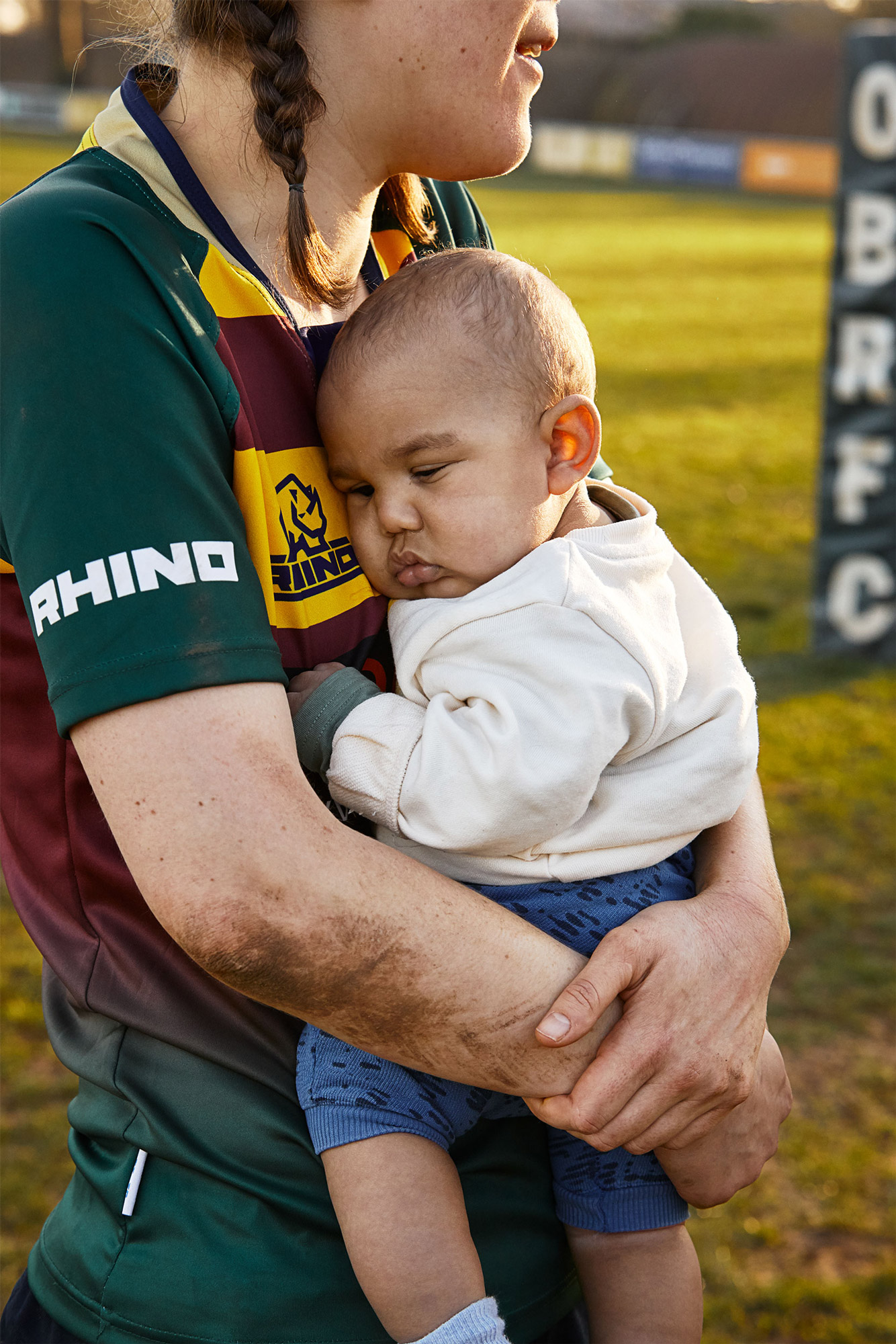
Nina started playing amateur rugby for the first time during lockdown. As an avid handball player, she struggled with the fact that height – and winning the genetic lottery in this area – was such an influencing factor in the sport. As indoor leisure centres closed in the midst of the virus, she went on the hunt for a new outdoor hobby to plug the gap. A quick Google search led her to the Old Bristolians Ladies team, a rugby union club based in the village of Failand on the outskirts of Bristol. Come rain or shine (and usually with lashings of mud) the OBs gather on a floodlit pitch to train every Wednesday evening in preparation for fortnightly weekend games, fuelled by Thermos flasks of coffee and tea. The team, which includes nurses, legal professionals and teachers in its ranks, was set up six years ago. Its adjacent men’s team has been playing since 1925, and all abilities are encouraged to sign up and give it a go.
The OBs steadfast coach, Aimee Kelly, has been playing rugby since she was a teenager, but moved into full-time coaching in 2013 when she was pregnant with her son. Like Nina, she found a refreshing sense of body acceptance in rugby that was important to her confidence as a teenage girl. “I did ballet from when I was really tiny until the age of about 15. I got to the point where I was considering pursuing it professionally, but my ballet teacher told me I was too muscular. I thought, ‘Well, stuff you!’ so I quit, and joined rugby. My mum played in a local team so I just joined in and never really stopped.” The OBs currently play in a development league, where the rules have been slightly adapted to cater for new joiners or players who are making their way down from top-flight rugby. “Recently, lots of new leagues have been created by England Rugby and I think that’s given women who want to try the sport a lot more variety,” explains Aimee. “If you want to push up to the Premier League you can, but there are also social teams like us where the focus is about enjoying it rather than pressure to win.”
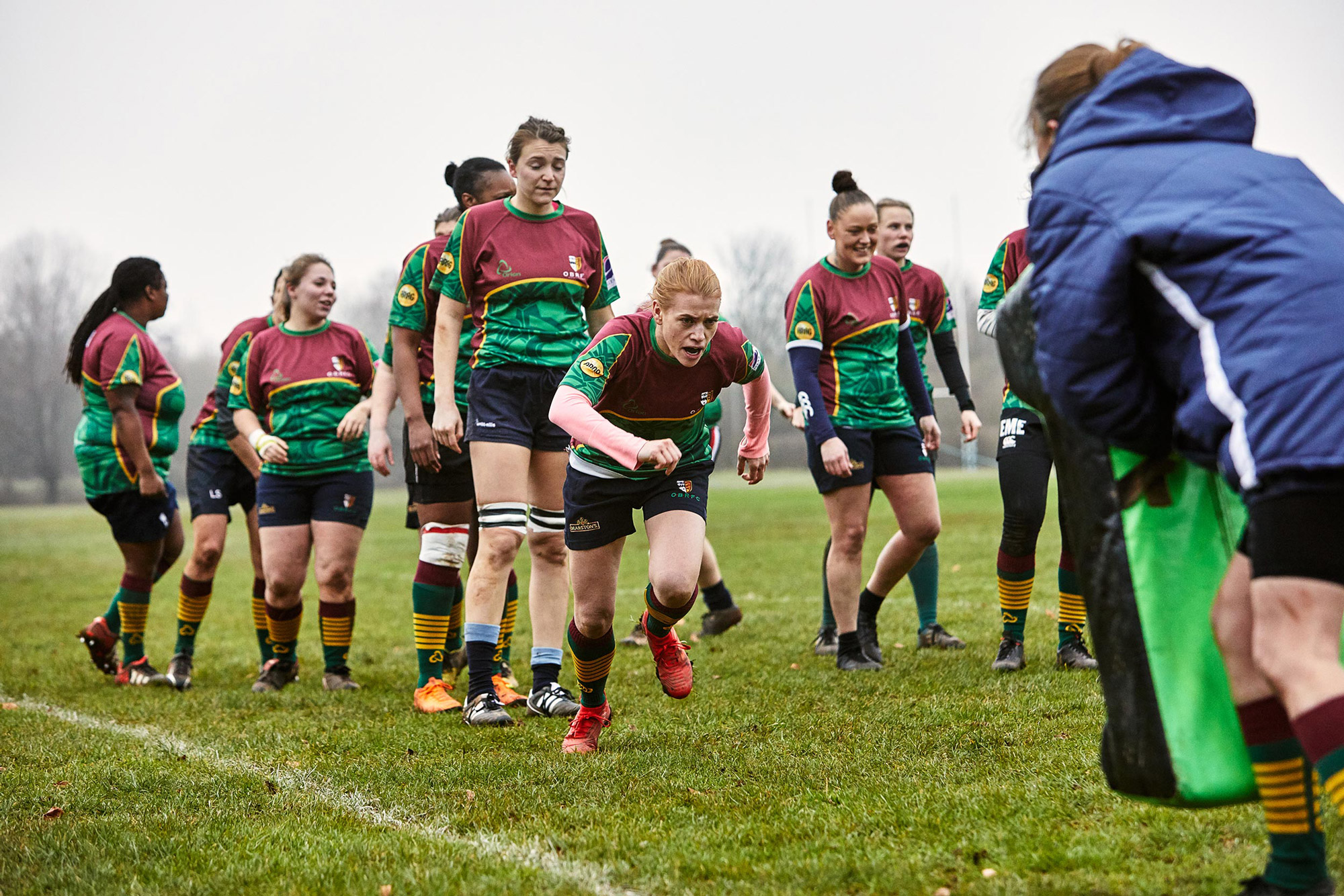
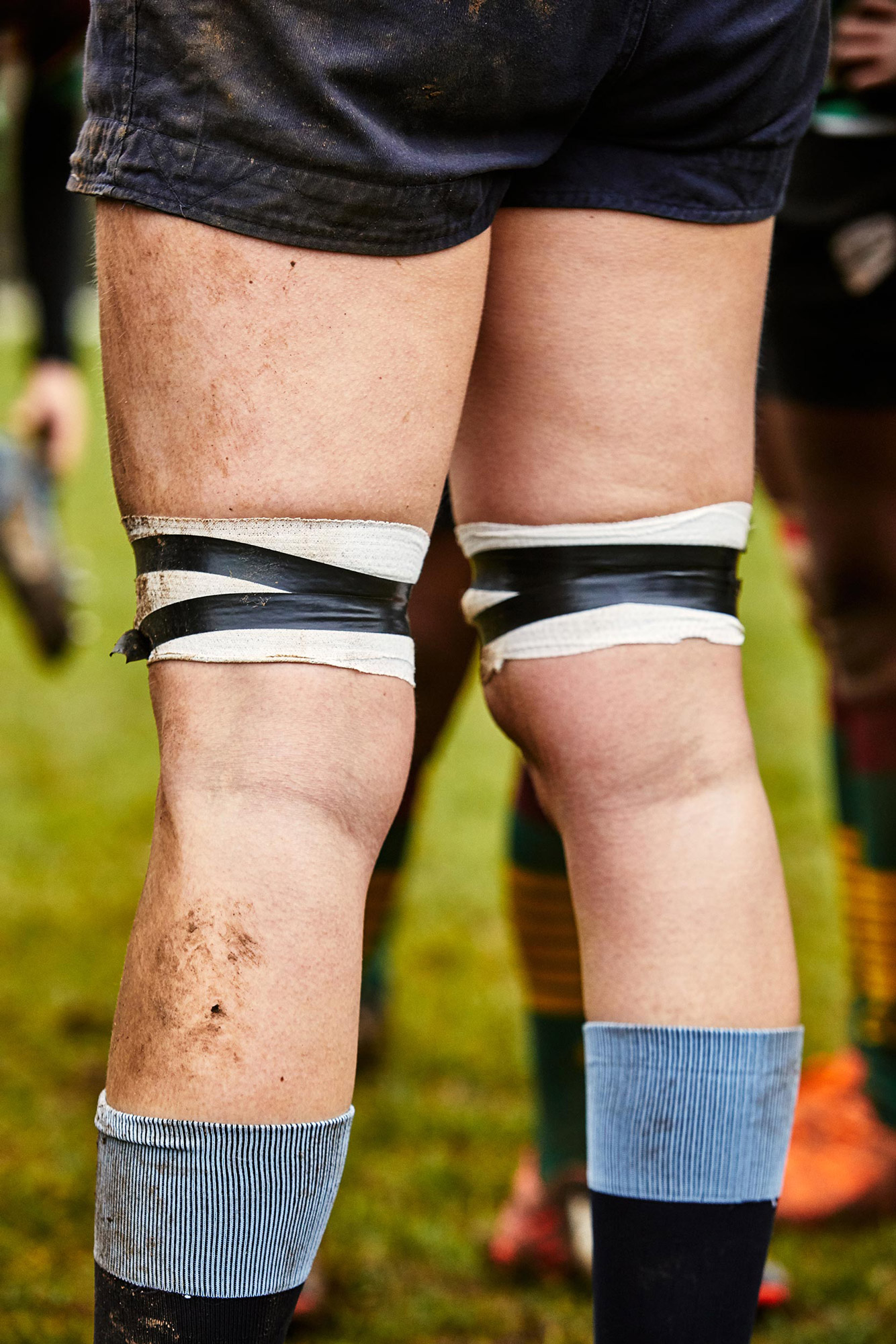
Whether professional or amateur, one thing is clear: women are joining rugby in their droves. According to World Rugby, women’s rugby is one of the fastest-growing team sports in the world and we now account for more than a quarter of players globally. Almost everywhere you look, new female superstars of the game are emerging and the incredible visibility of this year’s Six Nations Championship games, which have been broadcasted on the BBC and S4C, has drawn more spectators to its sidelines. “I still go to a pub now and people scoff, ‘You don’t play rugby’”, mutters player Sophia Henry. “But once they see the game on TV, people realise there isn’t a particular look for a women’s rugby player, and that we play with just as much passion as the men do – sometimes more. That’s why it’s important to show games in a pub without having to pay an extra subscription. It breaks the stereotypes.” In another seminal moment for women’s rugby, Six Nations Rugby and TikTok also recently announced a four-year partnership spanning the Women’s Six Nations, Guinness Six Nations and Autumn Nations Series. It’s the first time that the tournament has had a title partnership and one that will help to organically grow the fandom IRL and online.
“Supporting women’s rugby costs a fortune,” adds Sophia. “I’m happy to do it to support the game, but I’m aware that not everyone has the means to. These little steps just help to make rugby accessible and fair to all women, from all walks of life.” Watch a game of women’s rugby union and you’ll be struck by how tough the sport is. Injuries are part and parcel of it: between rucks, mauls, scrums and lineouts, it can be brutal. But for the women who play it, it’s this element of contact that they relish. “The reason I first fell in love with rugby was the physicality,” says Aimee. “It made me confident in my own strength, in my body and in my ability.” “I went through my entire childhood being quite physical and getting penalised for it,” agrees Sophia. “In football, if you happen to be bigger or stronger and you make accidental contact, you’re carded. I gave up on contact sports at the age of 13 and stuck it out in the gym. If I knew rugby existed I would have given it a go. It was amazing, years later, to find a sport that utilised my strength and broad shoulders.”
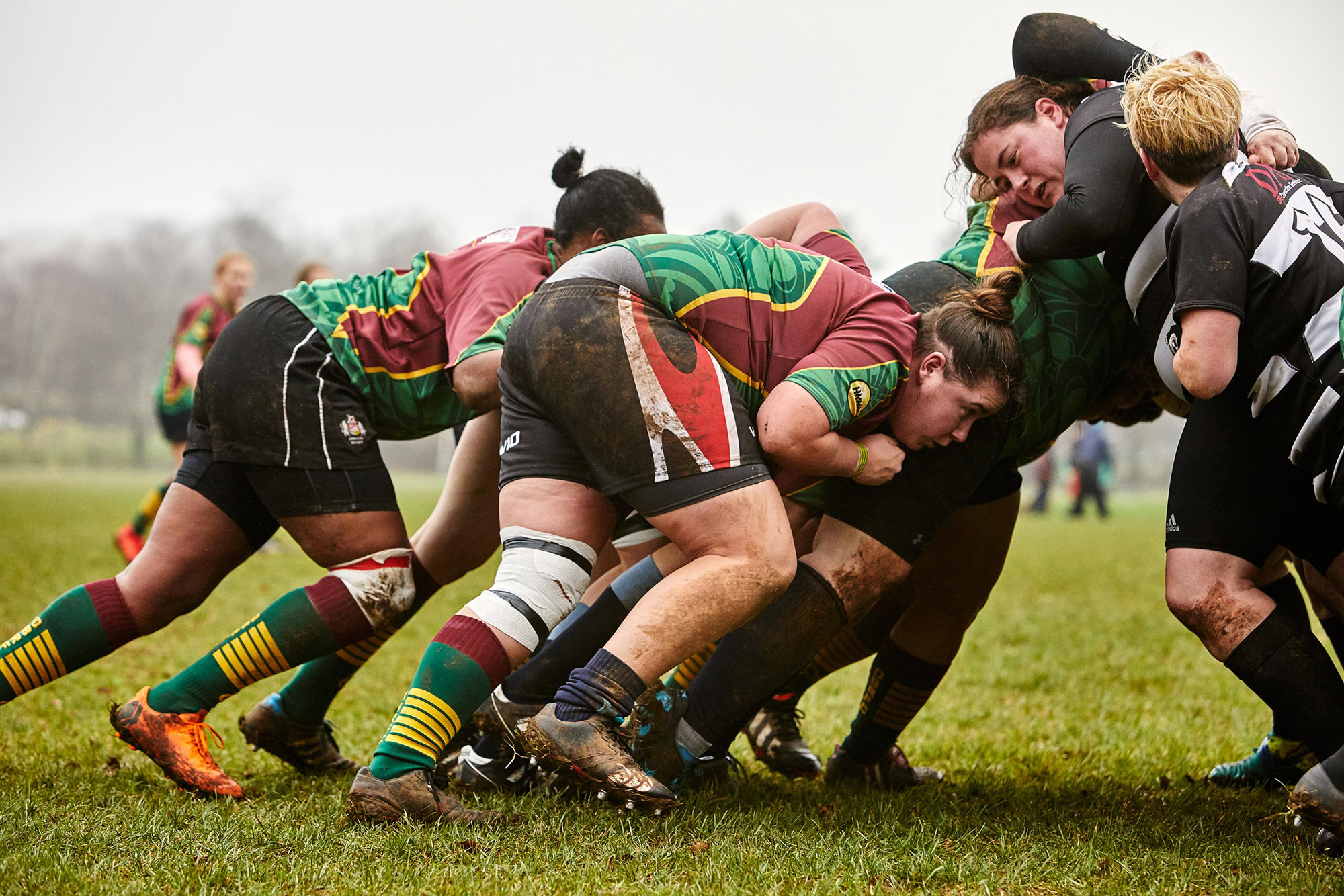
power
Sophia is a mother of two and a legal advocate by day. With her empathy and positivity, she’s a natural leader for the OBs. So what else makes her a great team captain? “I still ask myself the question all the time to be honest,” she laughs. “I think it takes someone who’s able to see each player individually, who can see their strengths and encourage them, or hear their concerns and help them through it. You’re the glue and it’s your job to make sure everyone’s head stays in the game at training or during a match.” Spend five minutes with the squad and it’s clear that there’s a strong sense of camaraderie between the players. During lockdown, they replaced their midweek training with fitness challenges, quizzes and a boozy end-of-season Zoom. Even skills training can get silly: “I’ll make them pass water balloons without popping them. Or they’ll bring a piece of fruit to training and do a bear crawl with it balancing on their backs, to work on their body positioning,” says Aimee. “It’s a bit of fun but it gets the point across. When you’re on the field, you’re putting your body on the line, so you have to have a sense of trust and community with the rest of the team for it to work.”
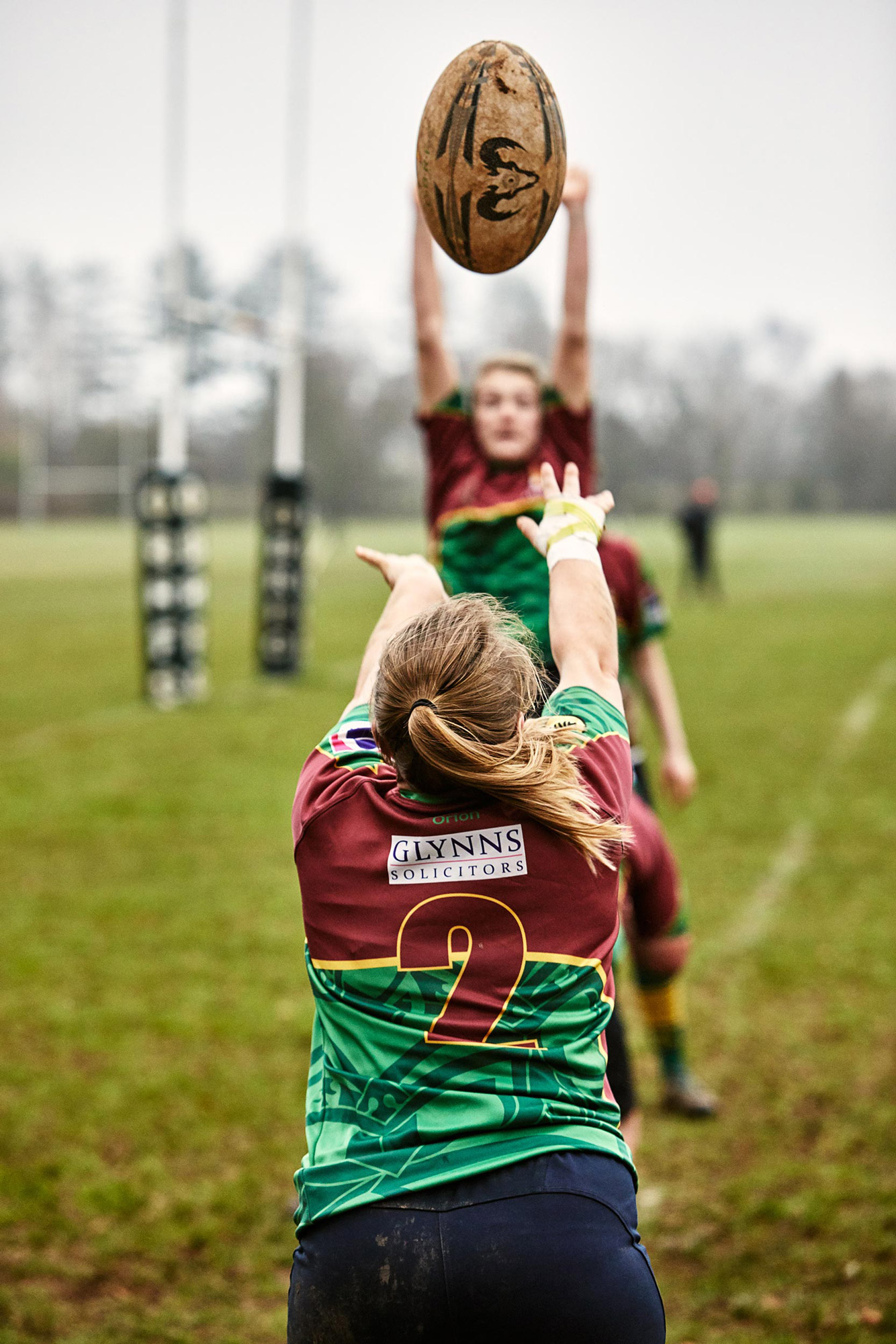
Sophia describes it as a “second family – as cheesy as that sounds”. She, in particular, found rugby a lifeline after a traumatic event. “I used to go to the gym a lot, but I found that really isolating. I went through an abusive experience and when I joined the team, it encouraged me to be a lot more social. Most people know me as an energetic, happy-go-lucky person who talks to everyone, but I wasn’t always that person. Rugby allowed me to be that person again. “I’m enthusiastic about rugby because I know the healing power that it holds. It doesn’t happen overnight, but during games, it teaches you things. Believing in yourself. Allowing yourself to make mistakes so you can get better. We’re not taught these things in school. You’re not going to start out as the best player there is, so you need to re-learn that as an adult playing rugby.” The Old Bristolians Ladies are currently fifth in their league and have suffered a couple of recent losses, but they’ve been inspired by England’s impressive march to a Grand Slam in the Six Nations. Plus, when they do win, they celebrate in style: “After big games we usually get a bottle of port in the showers,” laughs Aimee. “That sort of became a bit of a tradition.”
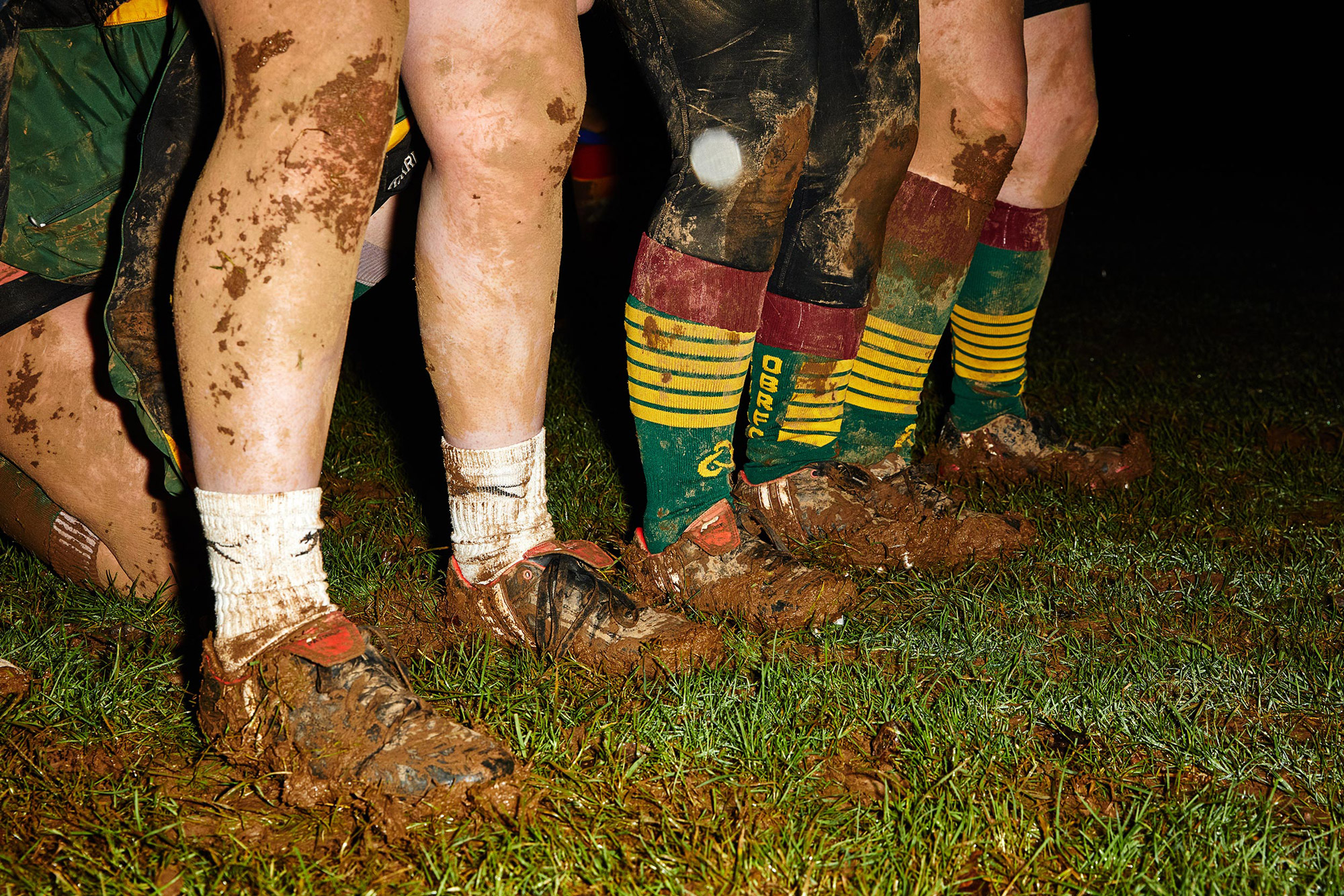

Muddy matches can be fun too: “There was one game where people were getting tackled into bogs left, right and centre,” laughs Sophia. “I had to go in the second row, where you basically get your head squidged between people’s legs. I came out with my entire face covered in mud. We ended that match by sliding off the pitch.” The OBs try to build a reassuring atmosphere in their training sessions because they know how daunting it can be to put yourself out there on the pitch the first time. “My go-to thing is that in rugby, you don’t make a mistake – you just learn,” says Aimee. “Everybody drops the ball forward and it’s no drama.” The season is coming to an end just as the weather is picking up, but even in the worst conditions, they’ll still show up for each other. “I’m the guy that’s always there at training,” laughs Aimee. “You’ve got a sense of duty. Plus, when it’s raining and freezing cold, it makes that lovely, warm bath at the end of it even better.”
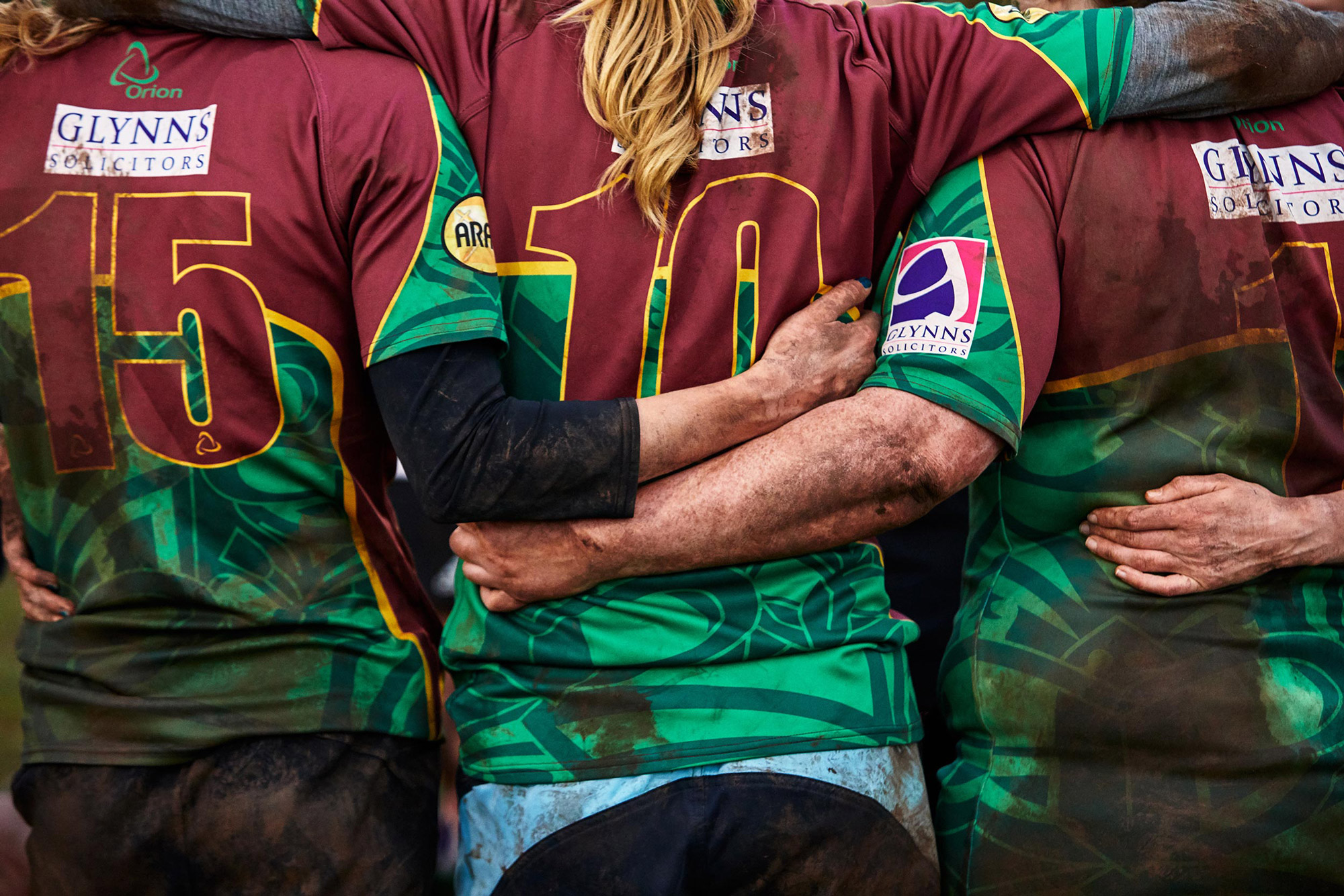
Photography By Richard Johnson
Editorial Design By Root
